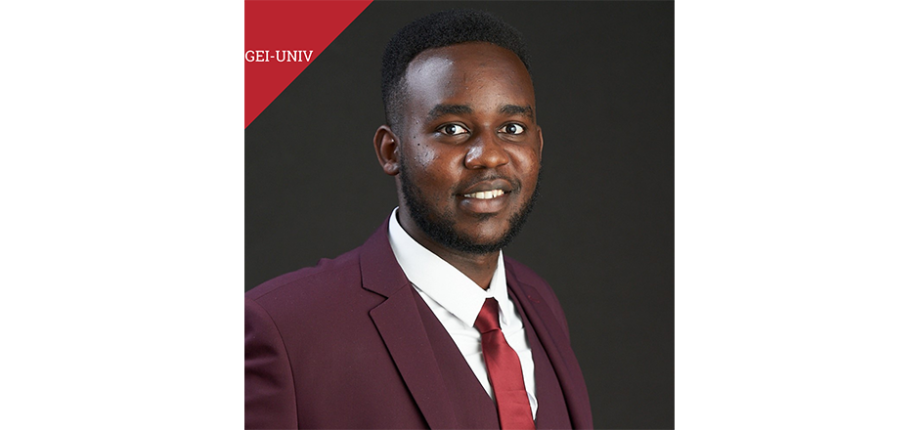Jean de Dieu Sinzinkayo, 2nd year engineering student

To help you see more clearly the training offer proposed by ENSAE Paris, students share their experience.
1. WHY DID YOU CHOOSE TO ENROLL AT ENSAE PARIS?
After my degree in Applied Mathematics and Social Sciences at the University of Lille, I was hesitating between data science and actuarial science, and had been admitted to the three other courses recognized by the Institute of Actuaries. My final choice was ENSAE Paris because it was the most renowned school, and because I knew that by choosing ENSAE, I was not closing any doors for each of the two fields that interested me. Finally, ENSAE Paris had something extra: it would allow me to have a dual "actuary-data scientist" qualification for later on, if I finally decided to go into actuarial science.
2. WOULD YOU RECOMMEND THE ENSAE PARIS PROGRAM? IF SO, FOR WHAT REASONS?
I would recommend ENSAE to anyone who wants to combine an excellent theoretical and practical training, and who wants to acquire a solid scientific base at a very high level in the fields of applied mathematics such as data science, quantitative finance and actuarial science. If a student comes to ENSAE, I would advise them to explore all aspects of the school and take advantage of this interdisciplinarity.
3. WHAT IS A TYPICAL WEEK LIKE FOR AN ENSAE STUDENT?
At ENSAE, Monday afternoons are reserved for sports (at least one compulsory sport) and Thursday afternoons are reserved for associations. The rest of the time alternates between lectures in the lecture hall with the whole class and tutorials in small rooms with smaller groups.
4. ARE YOU OR HAVE YOU EVER BEEN PART OF A STUDENT ASSOCIATION AT THE SCHOOL? IF YES, WHAT WAS YOUR ROLE AND WHAT DID YOU GET OUT OF THIS EXPERIENCE?
I was part of the International Students Office (BDI) where I held the position of General Secretary. This experience allowed me to learn how to manage the basics of an association, to improve my note-taking and writing skills, and to learn how to respect the legal framework of the association.
5. IN YOUR OPINION, WHAT ARE THE THREE STRONG POINTS OF ENSAE PARIS?
The school's reputation makes it easy to find internships and jobs, and to earn some of the highest salaries among engineering schools. It is a school that recruits its students from various backgrounds. Once in the school, one tries to draw on each of the cultures acquired before entering ENSAE, which is one of the school's strengths.
6. WHAT ADVICE WOULD YOU GIVE TO THOSE WHO ARE STILL WONDERING ABOUT THEIR ORIENTATION AND ARE NOW STUDYING FOR A DEGREE IN APPLIED MATHEMATICS AND SOCIAL SCIENCES?
It is a school on a human scale with very good professors and doctoral students, at the forefront of their field of research and who are available in case of difficulties. Secondly, it's a course of study in line with the current upheavals in society, and in particular the growing importance of data science in decision-making in all organizations. In addition to the technical tools needed to process and analyze this massive data, we learn to take a step back from these methods and bring order to a world awash in data.









